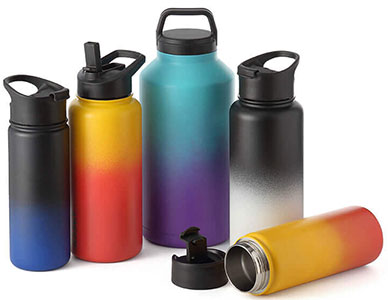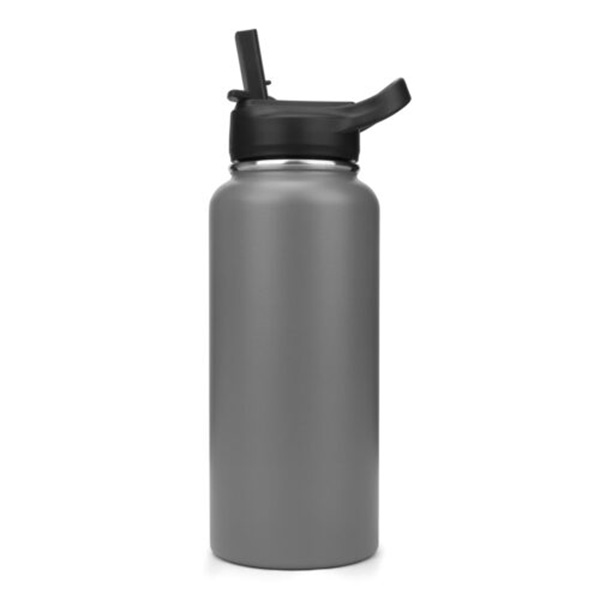Running isn’t just a way to exercise; it’s like embarking on a journey towards a healthier, more vibrant life. This simple yet incredibly effective activity is unmatched in its ability to boost both physical and mental well-being. However, for those beginners to the sport, starting a running routine can feel overwhelming. The fear of getting hurt, combined with not knowing where to begin, can discourage many potential runners. But don’t worry! Embarking on your running adventure can be smooth and enjoyable with the right guidance. Below, we’ve got eight essential tips designed specifically for beginners navigating the early stages of their running journey. These tips are carefully crafted to ensure a balanced approach that minimizes the risk of injury while maximizing enjoyment. Among these tips, we give special emphasis on hydration—an often overlooked but crucial aspect for novice runners. Proper hydration is key to successful running practice as it boosts performance and aids in recovery.
By incorporating these eight basic tips into your daily routine, you’ll discover the pure joy and amazing rewards of running. Whether you’re aiming to crush a marathon or simply embrace a healthier lifestyle, these guidelines will kick-start your journey, empowering you to smash your fitness goals and even surpass them. Let’s embark on this incredible adventure together, one step at a time, with hydration as our trusty sidekick.
Running is an awesome activity that offers a ton of benefits for your body, mind, and emotions. Here’s a super detailed overview of all the amazing things running can do for you, backed up by data and research findings:
Physical Health Benefits
- Improved cardiovascular fitness: Regular running strengthens the heart, making it better at pumping blood and reducing the risk of heart disease. A study published in the Journal of the American College of Cardiology found that just 5 to 10 minutes of moderate-speed running every day can decrease the chance of cardiovascular disease by up to 45%..
- Weight management: Running is like, one of the best ways to burn calories. According to Harvard Health Publishing, if you weigh around 155 pounds and run at a speed of 5 mph for about half an hour, you can totally burn like around 298 calories. So yeah, running is super effective for losing weight and keeping it off.
- Strengthened muscles and joints: Regular running boosts muscle strength, especially in the lower body, and improves bone density, which can help prevent osteoporosis. Plus, a study in Medicine & Science in Sports & Exercise discovered that running actually reduces knee pain and enhances knee function, debunking the myth that it damages your knees.
Mental and Emotional Health Benefits
- Stress Reduction and Improved Mood: Running triggers the release of endorphins, which are often called the body’s “feel-good” hormones. This can lead to what’s known as a “runner’s high,” where you feel really good and your stress and anxiety levels go down. A meta-analysis in Frontiers in Psychology confirms that running has significant effects on reducing symptoms of depression and anxiety.
- Enhanced cognitive function: Regular physical activity like running has been shown to boost memory, attention, and decision-making skills. Research published in Neurobiology of Learning and Memory shows that hitting the pavement can actually help grow new brain cells, leading to improved cognitive function.
- Better sleep: Running can help regulate sleep patterns and improve the quality of your sleep. A study published in the Journal of Clinical Sleep Medicine found that people who regularly do aerobic exercises, like running, experienced a significant reduction in insomnia symptoms and enjoyed better overall sleep.
- Increased longevity: Perhaps one of the most convincing reasons to run is that it’s linked to a longer life. According to a study published in Progress in Cardiovascular Diseases, runners have a 25%–30% lower risk of dying from any cause and live around three years longer than non-runners.
2. What if you run in a wrong way?
While running offers a ton of benefits for both physical and mental health, doing it with improper form or technique can totally mess you up. If you run all wrong, like slouching, wearing the wrong shoes, or going crazy distances without proper prep, you’re just asking for injuries, a drop in performance, and basically undoing all the good stuff that comes from running. Let’s take a closer look at what happens when you don’t do it right and why running in a right way is so important.
- Increased injury risk: Incorrect running form, such as overstriding, heel striking with excessive force, or running with excessive forward lean, can lead to common running injuries. These include shin splints, runner’s knee (patellofemoral pain syndrome), IT band syndrome, and Achilles tendinitis. Research has shown that improper running is a significant factor in overuse injuries among runners.
- Reduced efficiency: The way you run can make you tired faster if you’re not doing it efficiently, like bouncing too much or swinging your arms poorly. This is because it takes more energy to keep up the pace, which makes your overall running efficiency and performance worse. Studies show that improving how you run can help you use your energy better and become a more effective runner.
- Long-term muscle impact: Consistently running with poor form can mess up your body and cause imbalances and stress on your muscles and bones. This can lead to long-lasting pain and conditions that might make it harder for you to run or do other activities. For instance, if you don’t place your feet correctly, it can mess up how weight is distributed in your joints, which could wear them down over time.
3. What are eight running tips for beginners?
wholesale water bottles with straws Unit price: USD3.99
Therefore, to minimize these risks, it’s crucial to focus on having the right running form. This means keeping your spine in a neutral position, leaning slightly forward from your ankles (not your waist), landing softly with a midfoot strike under your center of gravity, and keeping your arms relaxed but moving efficiently. Here are right running tips for beginners:
- Running Tip 1: Start Slow and Gradual
One of the biggest mistakes beginners make is trying to go all out right from the start. Instead, focus on building up your endurance and avoiding burnout by starting off slow and gradually increasing your speed and distance. A proper running tip id to begin with a combination of walking and jogging intervals, slowly adding more running time as you build up your stamina.
- Running Tip 2: Invest in Proper Footwear
Keep this practical running tip in mind. The key to a successful running journey is finding the right pair of shoes. Make sure you visit a specialized running store and get professionally fitted for shoes that provide plenty of support, cushioning, and a proper fit. Don’t underestimate how important this investment is – ill-fitting footwear can cause discomfort, blisters, and even injuries.
- Running Tip 3: Prioritize Warm-Up and Cool Down
This running tip is always ignored by beginners. To avoid getting hurt and perform better, make sure you do some dynamic warm-up exercises before your run to get your muscles ready and increase blood flow. And don’t forget to finish each session with a nice cool-down that includes stretches to improve flexibility and help your muscles recover.
- Running Tip 4: Listen to Your Body
As you start your running journey, it’s crucial to listen to your body and pay attention to any discomfort, tiredness, or pain. If needed, don’t hesitate to take rest days. Pushing through injuries or ignoring warning signs can make things worse and hinder your progress in the long term.
- Running Tip 5: Mix Up Your Routine
Spice up your runs by mixing it up with different routes, terrains, and workout styles. Add in intervals, hills, trails, and cross-training activities to challenge different muscle groups and keep boredom at bay.
- Running Tip 6: Stay Hydrated and Nourished
Hydration and nutrition are super important for a successful running routine. Make sure you drink lots of water all day long, especially before and after your runs, to stay hydrated and perform at your best. And don’t forget to fuel up with a well-balanced diet full of carbs, proteins, and healthy fats to keep your energy levels high and help those muscles recover.
- Running Tip 7: Set Realistic Goals
Setting realistic and achievable goals is essential running tip for staying motivated and measuring progress. Whether it’s completing your first 5K, increasing your weekly mileage, or improving your pace, establish clear objectives that align with your abilities and aspirations. Celebrate each milestone along the way to maintain momentum and keep pushing forward.
- Running Tip 8: Embrace Rest and Recovery:
Rest days aren’t a sign of weakness, but rather a super important part of any training plan. Make sure to schedule regular rest days so your body can recover, repair, and adapt to the demands of running. Don’t forget to incorporate foam rolling, massage, and other recovery techniques to help ease muscle soreness and prevent overuse injuries.
4. Are there any hydration tips for running beginners?
Hydration is super important for runners’ performance, recovery, and overall health. Having a good hydration plan can keep your body functioning at its best, boost your performance, and prevent the risks of getting dehydrated or overhydrated. Here are some essential tips to stay hydrated while running:
- Understand your hydration needs: Hydration needs can vary a lot from person to person because of things like how much you sweat, the weather, how hard you’re running, and your own body. Start by figuring out what works for you by paying attention to when you feel thirsty, checking the color of your pee (aim for light yellow), and noticing how much you sweat during your runs.
- Pre-run hydration: Make sure you’re well-hydrated before starting your runs by drinking fluids throughout the day leading up to your run. Drinking around 17-20 ounces (about 500-600 mL) of water two to three hours before running gives your body enough time to process the fluid and keep you properly hydrated.
- Hydrate during runs: For runs longer than an hour, consider hydrating during the run. A general guideline is to consume 5-10 ounces (about 150-300 mL) of fluid every 15-20 minutes. However, this can vary based on your sweat rate and the conditions. On hotter days or for longer runs, you may need to increase your water taking. But remember to take your water bottle with you!
- Choose your fluids wisely: For runs under an hour, water is usually enough. But if you’re going for longer or running in hot and humid conditions, it’s a good idea to grab a sports drink with electrolytes (like sodium and potassium) to replace what you lose through sweat and keep your body hydrated.
- Post-run rehydration: After you finish your run, make sure to drink water or a sports drink to replenish the fluids you lost. A good rule of thumb is to gulp down 16-24 ounces (about 475-710 mL) of liquid for every pound of weight you shed during your jog.
- Adapt to environmental conditions: Hot, humid weather increases sweat losses, and you may need to increase your fluid intake. In contrast, cooler weather might reduce your perceived need for fluids, but you should still aim to hydrate adequately.
5. How to choose fitting water bottle for your running?
By implementing these hydration tips, running beginners can ensure they are adequately prepared to meet the hydration demands of their training and racing, supporting overall health and optimizing performance. Don’t forget that choosing the right water bottle is crucial for runners to ensure they stay hydrated before, during, and after their runs efficiently and conveniently. The ideal water bottle should meet your specific needs in terms of capacity, ease of use, durability, and how you plan to carry it during your runs. Here are several factors to consider when selecting the perfect water bottle for running:
- Capacity: Consider your hydration needs. Depending on the length of your runs and the climate you’re running in, choose a water bottle with enough capacity to keep you hydrated. Bottles typically range from 12 ounces (about 355 mL) to 32 ounces (about 946 mL) or more.
- Ease of use: Look for a spill-proof design. A water bottle with a secure, easy-to-open cap can prevent spills and allow you to drink easily while on the move. Besides, blank water bottles with one-handed operation that can be opened and closed with one hand are convenient for runners.
- Material: BPA-free material like stainless steel water bottle will be a perfect idea, which is portable and durable as well as free to chemical leaching. Also, stainless steel water bottles are excellent for keeping your drink cold or hot for extended periods, but heavier than plastic.
- Comfort and portability: Consider the handheld running water bottles. Some bottles are designed with straps to secure them to your hand, making them easy to carry without having to grip them tightly. If you prefer to run hands-free or need to carry more water, consider a hydration belt or vest that can hold one or more water
- Insulation:For long runs in hot weather, an insulated stainless steel water bottle can keep your water cold, enhancing the refreshing effect of hydration.
- Ease of cleaning: Wide-mouth water bottles are easier to clean and can accommodate ice cubes for colder drinks. And for convenience, you can look for water bottles that are dishwasher-safe.
- Environmental impact: Choosing a durable, reusable water bottle is not only good for your running needs but also beneficial for the environment by reducing plastic waste.
- Personal style: While functionality is key, choosing a water bottle that matches your personal style can make you more inclined to use it regularly.
Picking the perfect water bottle for running is all about finding a balance between what works best, what’s easy to use, and what you personally prefer. By taking into account these factors we’ve talked about, you’ll be able to find a bottle that not only keeps you hydrated but also fits right in with your running routine.
6. Conclusion
In conclusion, while running has undeniable benefits, it’s super important for beginners to make sure they stay hydrated. Getting a reliable water bottle will make it easy for you to drink whenever you need to, whether you’re hitting the trails or pounding the pavement. So as you lace up your shoes and start your running journey, don’t forget to grab your water bottle and keep yourself hydrated every step of the way.


